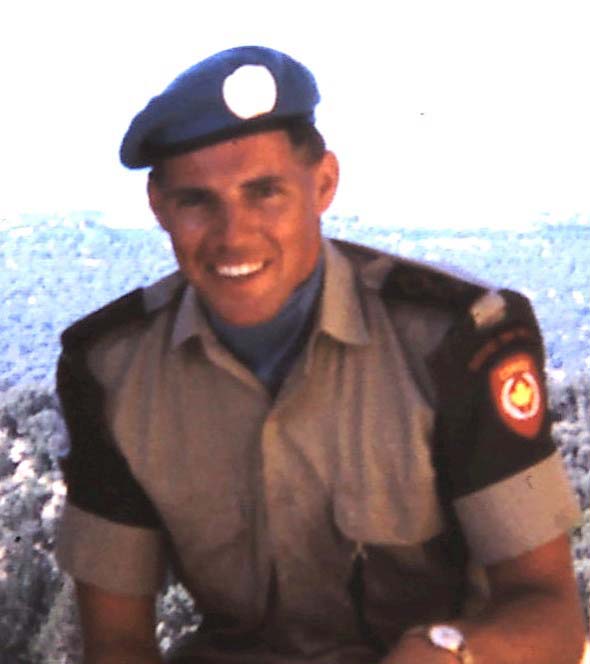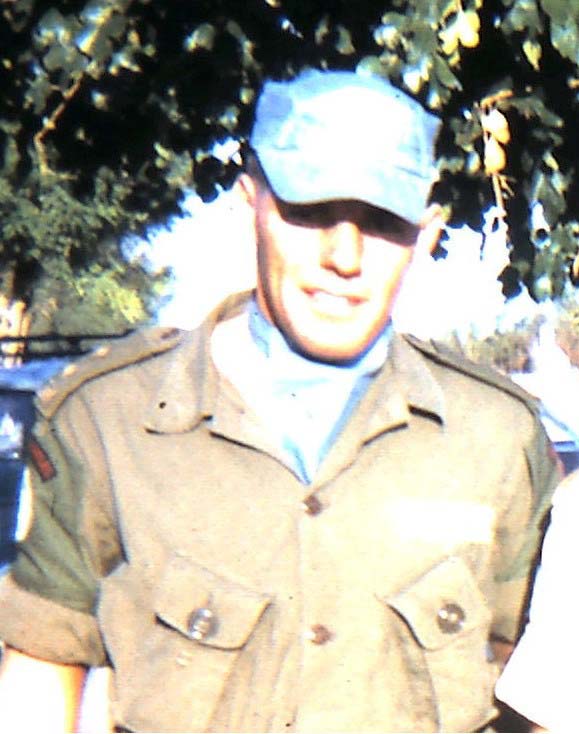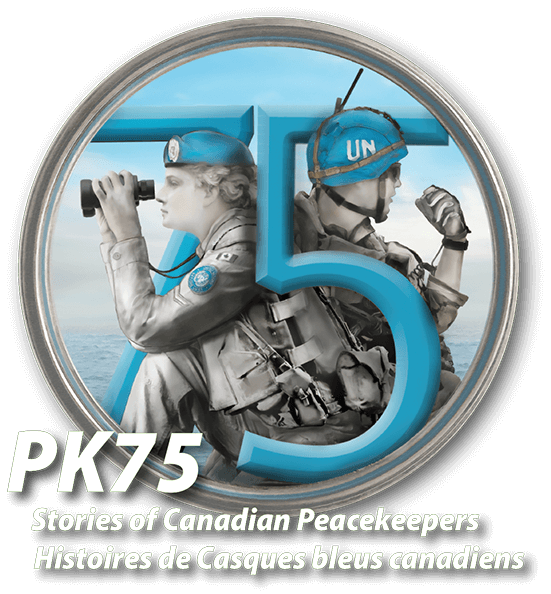

I arrived in the theater of operations on a bright warm day in early May 1994 and, as the Croatia Airlines flight approached Zagreb, I had a bird’s eye view of beautiful, lush land and rolling hills below. My immediate thought was how such a tranquil looking land could be the setting for such a brutal war. Once on the ground, I quickly came to realize the magnitude of the destruction and devastation of the infrastructure and how deep-seated the hatred was between the factions.
I was appointed Deputy Force Commander (DFC) and Commander Canadian Contingent for UNPROFOR. As the DFC, I was responsible for UN operations and liaison in Croatia (although I was fortunate to be very involved with operations in Bosnia and the Former Republic of Macedonia), as well as for coordinating the work of the NGOs and contingents, UN logistic support across the entire Balkans, and a myriad of other tasks. One important task was to put an end to the extensive corruption and misuse of UN assets by several contingents and nations; this turned out to be an almost impossible task, despite devoting a great deal of time and effort to it. As Commander of the Canadian Contingent, I was responsible for purely Canadian matters related to the 2,500 Canadians deployed in the Balkans and was blessed with an outstanding staff specifically for this appointment. My office was located in a former Yugoslav Army barracks in Zagreb.
Despite many briefings and personal preparations prior to deploying, the greatest initial challenge was gaining an understanding of the numerous factions and their goals. It was only after several visits to the operational sectors and holding several meetings that I came to realize the true purpose of the countries involved in the war and of the factions within the countries. This was an extremely complex mission with a variety of challenges, not the least of which was inept units deployed in the Balkans as part of UNPROFOR, and the international support being provided to the various countries, adding to the intrigue.
Shortly after arriving in theatre, Croatia imposed a total restriction on the road movement of UN logistic and other support into the four United Nations Protected Areas (UNPA). The Croatia government accused the UN of importing arms and other equipment into the UNPAs that were then supposedly given to the Serbs, and that this had to stop before the restrictions would be lifted. I was tasked by the Special Representative of the Secretary General (SRSG) and Force Commander to resolve the situation and to get the logistics flowing immediately, as it was having a severe detrimental impact on operations.
The Croatian government representative in charge was the Minister of the Interior and in my first meeting with him, it was very evident that this was not going to be settled quickly, and that the Croatian government was using this as yet another ploy to discredit the UN. The meetings with the Interior Minister were painful and totally non-productive, and usually lapsed into history lessons by the Croat representatives about how Croatia had been hard done by over its history and that it was now flexing its muscles to show the world they ‘controlled’ their own destiny. I kept asking myself how a country that itself was a member of the UN, could impose such nonsensical restrictions on a UN force in their country, and lie to the world about the realities of what was going on. It took over a month of negotiations to get the movement restrictions lifted and only after the UN agreed to further checks and balances to ensure that only goods and commodities required in the UNPAs for UN personnel were allowed.
This is only one example of many frustrations imposed by the ‘host’ country that further frustrated the troops who were deployed to keep the peace, and far too often had to put their lives on the line to do so. It is one illustration of the frustrations of peacekeeping in the Balkans; there were many more. But the success of keeping over two million people alive each day by delivering the necessities of life, by preventing a major recurrence of fighting, and by ensuring the war did not spread beyond the borders of the Balkans, all outweighed the frustrations in an area of the world that was, at the time, stuck in an ethnic and political quagmire.
Biography
Lieutenant-General Ray Crabbe was born in Neepawa MB and joined the Canadian Army in Sep 1963. On graduation from the University of Manitoba, he served in a variety of command and staff appointments including tours of duty with the United Nations in Cyprus and the Balkans, and NATO in Germany.
His command appointments include Commanding Officer of 1st Battalion Patricia’s Canadian Light Infantry in Calgary AB, Commander of the Special Service Force in Petawawa ON, Deputy Force Commander of the United Nations Protection Force and Commander of the Canadian Contingent in the Balkans, Commander Land Force Atlantic Area in Halifax, NS, and Commander 1 Canadian Division in Kingston, ON.
His senior staff appointments included Regimental Major, Canadian Airborne Regiment, Chief of Staff (COS) of the Army Staff College, COS Prairie Militia Area, and Director-General Personnel Careers Other Ranks at National Defence Headquarters. In September 1997, Lieutenant-General Crabbe was appointed Deputy Chief of Defence Staff (DCDS) at National Defence Headquarters in Ottawa, where he was responsible for Canadian Forces operations and intelligence worldwide.
He is a graduate of the Canadian Land Forces Command and Staff College, Kingston, ON, the Canadian Forces Staff College, Toronto, ON, and the United States Armed Forces Staff College, Norfolk, VA.
His involvement in peacekeeping includes a tour in Cyprus with UNFICYP as a platoon commander in the Kyrenia area in 1967, and as the Deputy Commander and Commander Canadian Contingent in UNPROFOR 1994–95. In various command appointments he was also responsible for training individuals and contingents for UN operations. As DCDS, he was responsible for all Canadian operations with the UN. In 2003, he was appointed for one year as Chair of the Multinational Standby High Readiness Brigade for UN Operations (SHIRBRIG)
He retired from the Canadian Forces in October 1998. In May 2010, Lieutenant-General Crabbe was appointed Colonel of the Regiment of Princess Patricia’s Canadian Light Infantry and held that appointment until June 2015. On retirement, he managed his own company, providing mentorship and assistance to small businesses in Canada and the USA, and was active in defence and foreign affairs with the Canadian Government. He served on several Boards in Manitoba and federally.
He is married to the former Brenda Freeman of Killarney, MB. They have two children, Lia, and Derek, and four grandchildren. He and Brenda currently reside in East St Paul, MB.

Lt RR Crabbe serving with 2 QOR of C in Cyprus July 1967 at Bellapais Abbey.

Lt RR Crabbe serving with 2 QOR of C in Cyprus October 1967 at Camp Maple Leaf.


